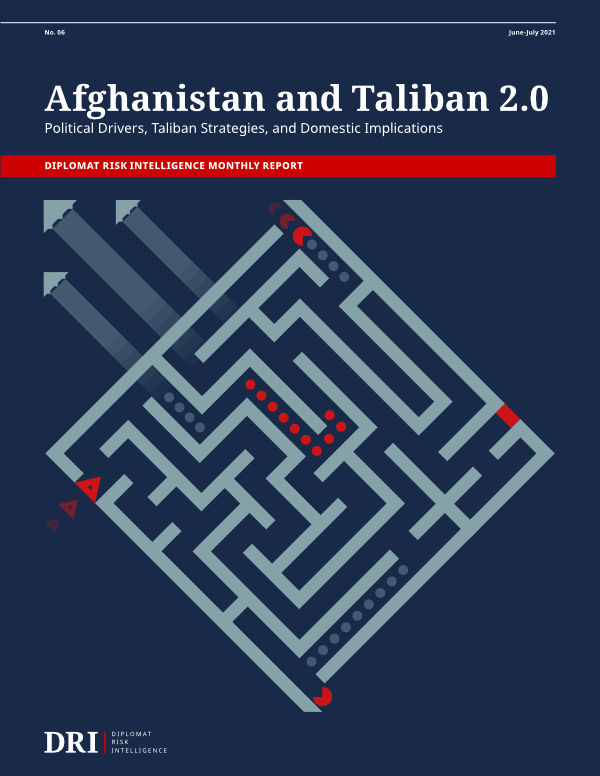| Welcome to the latest issue of Diplomat Brief. This week our top story probes the millions of dollars in IMF loans, supposed to go to Myanmar’s pandemic response, that went missing after February 1 coup. We also have an interview with Van Jackson, a professor at Victoria University of Wellington, on China’s “hostage diplomacy.” |
| Story of the week |  | ECONOMY Myanmar’s Missing MillionsWhat Happened: Just days before the military seized control of Myanmar, the IMF sent $372 million to the government for pandemic relief funding. Unlike the previous civilian government, the junta has provided no accounting of the funds, even while the COVID-19 situation spiraled downward. Meanwhile, the IMF and other international financial organizations have cut ties with the junta. Our Focus: Myanmar’s military has proved that it is “not a good custodian” of COVID-19 relief funds, Keel Dietz, policy consultant at Global Witness, told The Diplomat. “We have already seen them weaponize COVID to a significant extent by banning the private distribution of oxygen and arresting doctors.” Instead, Dietz – along with other human rights NGOs – recommends channeling desperately needed aid through civil society organizations in Myanmar. That would allow international partners to avoid giving legitimacy to the junta – and avoid seeing desperately needed funds siphoned off by corruption. What Comes Next: Myanmar’s economy is crashing, but the IMF and other organizations are refusing to offer more aid directly to the junta, as there’s no guarantee the money will go to good use. As a result, the military coup is taking an ever-heavier toll on Myanmar’s economy and its people, with more and more facing hunger and extreme poverty. The international community will need to work fast to get aid to the country, but how to do so without interacting directly with the junta remains a work in progress. Read this story |
| Behind the News | INTERVIEW Van JacksonDr. Van Jackson, professor at Victoria University of Wellington in New Zealand, on the long-term implications of the “two Michaels” saga: “Beijing doesn’t have any one go-to tool for statecraft, but hostage diplomacy is clearly part of its repertoire now… We’re in a post-jetsetter world where there’s very real personal risk of being physically in China, but statistically speaking it’s not anything to worry about.” Read the interview |
| This Week in Asia | Northeast Asia South Korea’s Presidential Race SolidifiesThe People Power Party, South Korea’s main opposition party, will select its presidential candidate on November 5, finalizing the line-up for the presidential race in March 2022. The ruling Democratic Party’s candidate is Gyeonggi Governor Lee Jae-myung; the PPP’s current front-runner is former Prosecutor General Yoon Seok-yeol. Whoever the nominee, the PPP will be hoping to best Lee and win its first national election victory since 2017. Find out more | South Asia Pakistan’s Government Cuts a Deal With the TLPPakistan’s government – with the military acting as a mediator – cut a deal with the Tehreek-e-Labbaik Pakistan (TLP), a banned religious group that had organized large-scale protests for the past two weeks. The deal will end the street-level chaos, but it’s not clear at what price. The government has so far kept silent on exactly what it agreed to give up in order to placate the TLP. Find out more | Southeast Asia What Is Rodrigo Duterte’s Election Plan?Incumbent President Rodrigo Duterte is prohibited by the Philippines’ Constitution from running for re-election next year, but he seems set on trying to keep some form of political office. After nixing a VP bid, the latest idea is for Duterte to run for senator. Meanwhile, the ambitions of his daughter, Sara Duterte, are still up in the air as well. We should know more by November 15, the deadline for parties to swap out nominated candidates. Find out more | Central Asia Kazakhstan vs. FacebookThis week Kazakh authorities bragged that they’d gained “exclusive” access to Facebook’s content reporting system in order to directly flag content violating the country’s vague and loosely applied laws, worrying rights activists. Meta, the recently renamed parent company of the social media platform still known as Facebook, pushed back, with a spokesman saying, “This process is the same in Kazakhstan as it is for other countries around the world.” Find out more |
| Visualizing APAC |  | Despite the poor weather conditions, over 1,000 protesters braved heavy rain to support pro-democracy protest leaders in central Bangkok, Thailand on October 31, 2021. See the full picture |
| Word of the Week | ENVIRONMENT استادUstad: A Persian term, also used in Urdu, Pashto, and Hindi, for a “master” teacher or artist – often specifically a classical musician. Find out more |
| Webinar | The Diplomat Asks AUKUS’ Reception in the Indo-PacificAUKUS adds to growing array of minilateral arrangements in Asia today and has drawn a variety of reactions from across the region, ranging from wary to enthusiastic. What are the regional sensitivities around AUKUS? What does AUKUS mean for Australia's broader regional role? How will AUKUS contribute to regional debates on a security architecture? Join us on November 17 at 5 p.m. U.S. Eastern time for an expert overview of the regional reaction to and long-term implications of AUKUS in the Indo-Pacifc. Sign up for the webinar |
|  |





